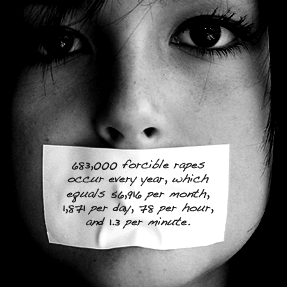-
Advocacy Theme
-
Tags
- Abortion
- Adoption
- Caregiving
- CEDAW
- Disability
- Domestic Violence
- Domestic Workers
- Harassment
- Healthcare
- Housing
- International/Regional Work
- Maintenance
- Media
- Migrant Spouses
- Migrant Workers
- Muslim Law
- National budget
- Parental Leave
- Parenthood
- Polygamy
- Population
- Race and religion
- Sexual Violence
- Sexuality Education
- Single Parents
- Social Support
- Sterilisation
- Women's Charter
Let’s call a rape a rape
January 28th, 2013 | Gender-based Violence, Letters and op-eds, News, Views
By Wong Pei Chi and Jolene Tan
Media coverage and popular discussion of rape give disproportionate weight to concerns over false reports – to the point where the default response for many is to assume that a woman is lying if she discloses that she was a victim of rape or sexual assault. It is exactly this social norm that allows rapists to continue raping, because they know their victims will not be believed.
We refer to the recent letters expressing concern over false allegations of rape (“Fabricated rape claims exact heavy toll on men” by Mr Yang Jiwei; Jan 15) and marital rape (“Address issue of marital rape” by Ms Junie Loh, Jan 15; “Marital rape: Existing law is adequate” by Mr Amos Wu Pom Hin, Forum Online, last Friday; and “Marital rape: Existing law not ideal” by Mr Benjamin Joshua Ong, Forum Online, Tuesday).
We agree that false allegations of any criminal offence – whether rape or otherwise – should be taken seriously.
However, as with any crime, rape investigations should proceed without suspicions regarding the victim’s credibility.
There is no evidence that false allegations of rape make up a significant percentage of the cases that are reported to the police.
Yet, media coverage and popular discussion of rape give disproportionate weight to concerns over false reports – to the point where the default response for many is to assume that a woman is lying if she discloses that she was a victim of rape or sexual assault.
It is exactly this social norm that allows rapists to continue raping, because they know their victims will not be believed.
It discourages victims from reporting to anyone, increases their difficulties and impedes justice.
The argument in support of Section 375(4) of the Penal Code, which treats marital rape as an exception to rape save in certain circumstances, is that “sexual relations are to be expected in a marriage”.
We agree, but consent should still be a pre-condition.
Where an individual regularly refuses to have sex with her spouse, some remedies the spouse or couple can seek include medical treatment, professional counselling or divorce, rather than to force the unwilling spouse to have sex.
Law enforcers and lawyers regularly examine evidence of rape in other contexts.
If marital rape immunity were entirely repealed, these agencies would just have to apply the same considerations to marital rape cases, which are currently automatically excluded regardless of the strength of evidence.
One example is the landmark case of PP v N, where the evidence led the court to conclude that the defendant had tied his wife up and forced himself onto her.
But despite incontrovertible evidence, the court could not convict the defendant of rape.
We agree with Mr Ong that it is crucial to call a spade a spade, or in this case, a rape a rape, whether it occurs within marriage or outside of it.
Wong Pei Chi is an AWARE Board Member and Jolene Tan is the Co-Founder of the No To Rape campaign. An initial version was first published in The Straits Times on 24 Jan 2013. Read the published version here.



